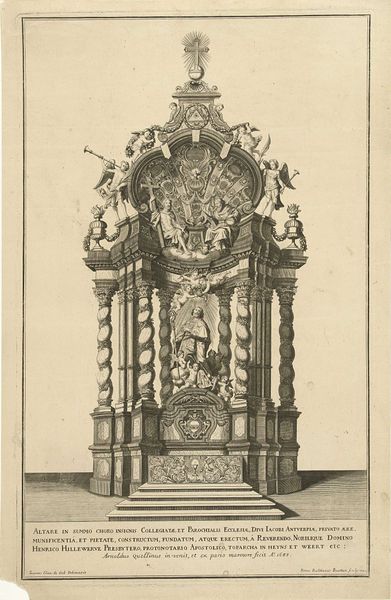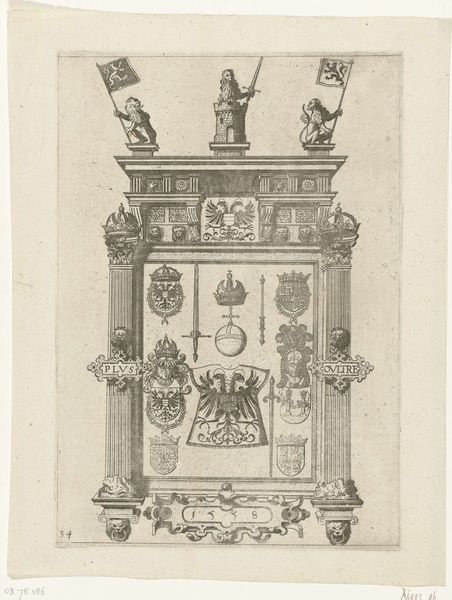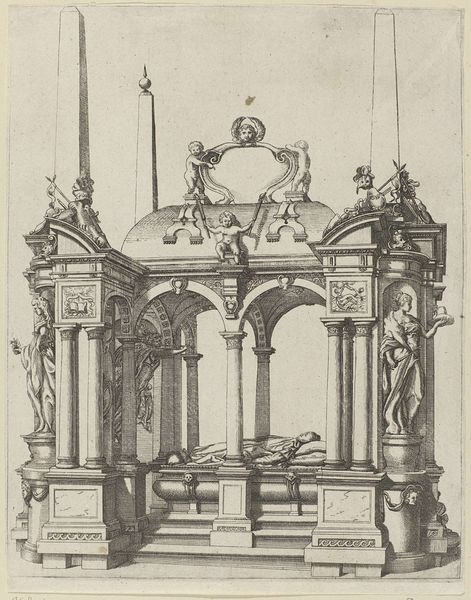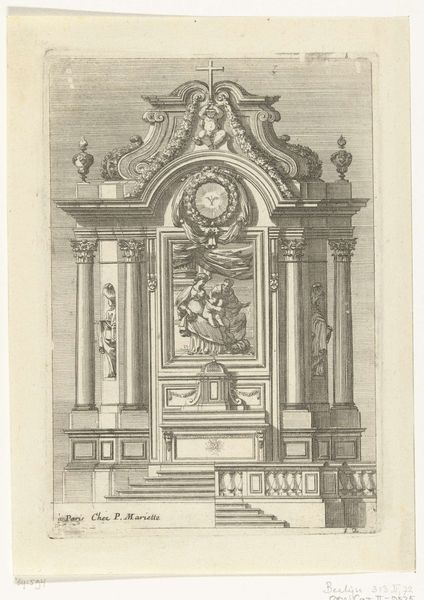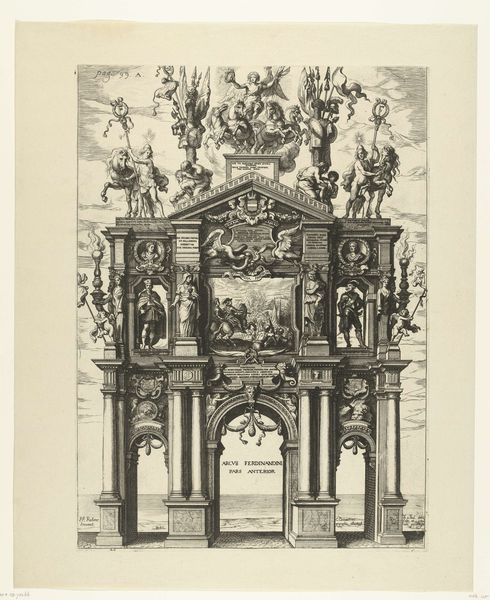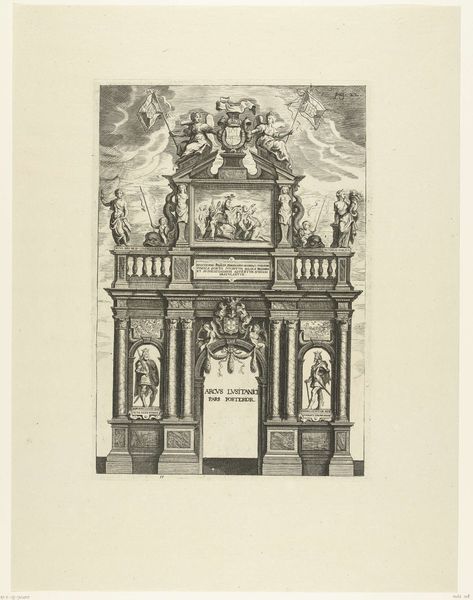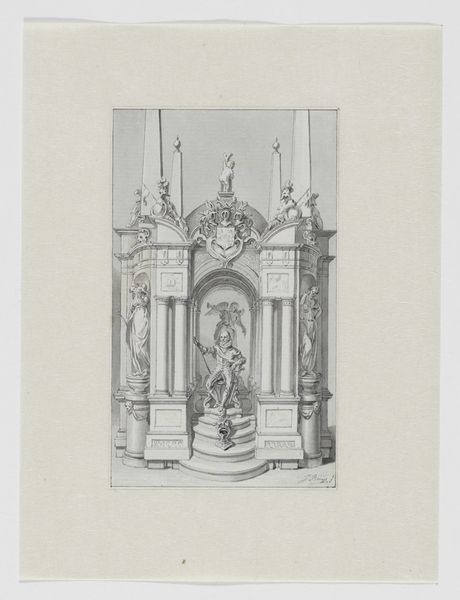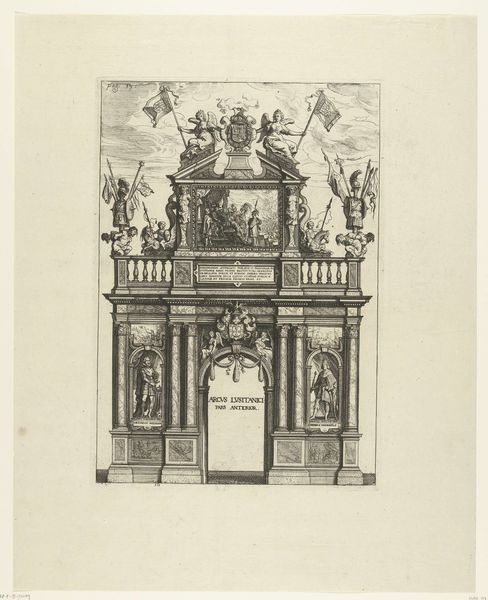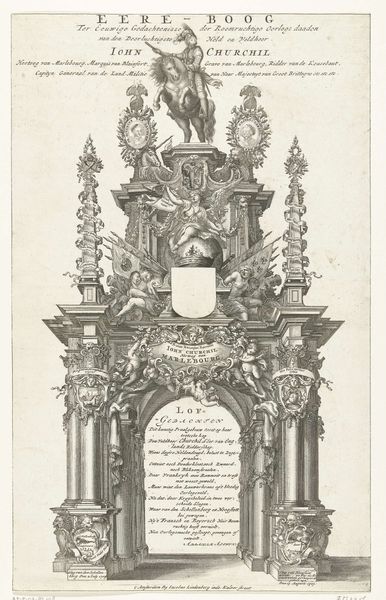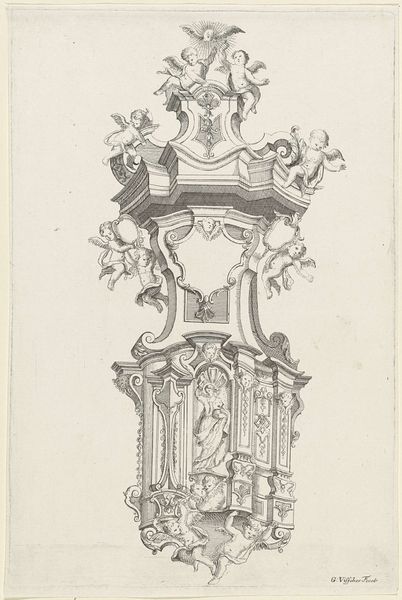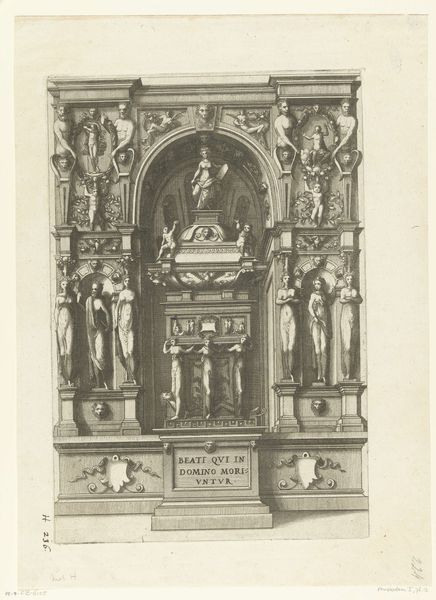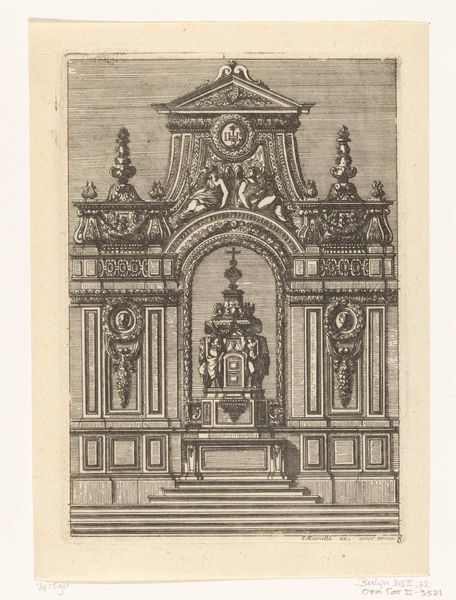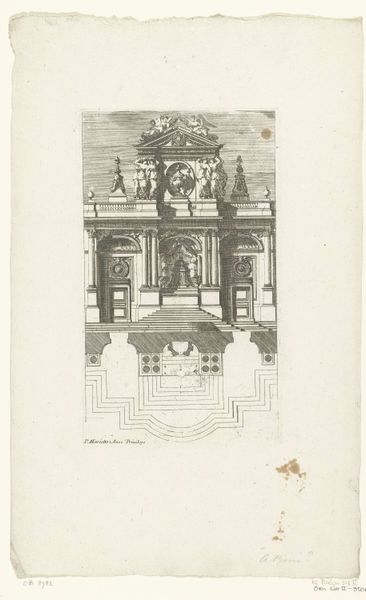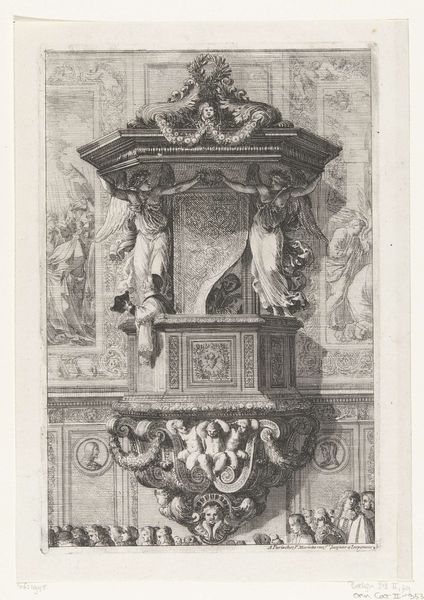
Dimensions: height 232 mm, width 154 mm
Copyright: Rijks Museum: Open Domain
This print, made by Reinier Vinkeles around 1770, depicts the tomb of William I, Prince of Orange, originally erected in 1623. The technique used is etching, a printmaking process where lines are incised into a metal plate using acid. Vinkeles' skillful handling of this process allows for incredibly fine details, from the textures of the stone to the play of light and shadow, a testament to his mastery and the labor-intensive nature of traditional printmaking. Etchings like this played a crucial role in disseminating images and ideas. They allowed a wider audience to engage with important monuments like William’s tomb, reflecting his enduring legacy in Dutch history and solidifying the cultural memory of important events. Understanding the making helps us appreciate this print not just as a historical document, but also as a beautiful object in its own right. The tradition and time involved highlights the value we should place on craftmanship and historical artefacts.
Comments
No comments
Be the first to comment and join the conversation on the ultimate creative platform.
